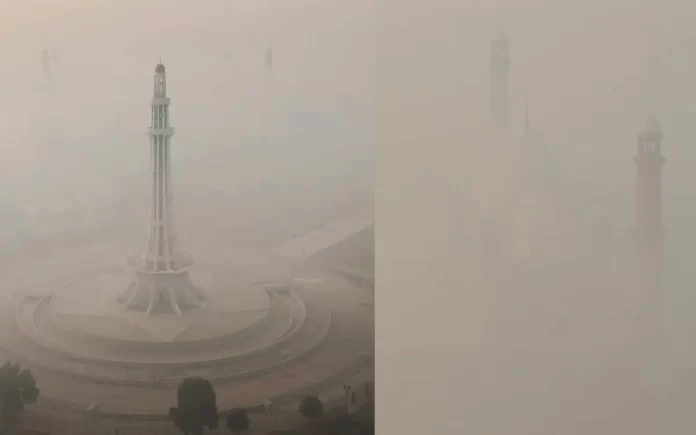Lahore, Pakistan – Unprecedented air pollution levels in Lahore, the country’s second-largest city, have prompted authorities to implement emergency measures on Sunday. The city topped a global pollution index, recording an alarming pollution reading of 1900 near the Pakistan-India border, according to data from the provincial government and Swiss organization IQAir.
In response to the severe air quality crisis, the government has ordered primary schools to close for one week and advised parents to ensure their children wear masks when outdoors. Senior Minister of Punjab, Marriyum Aurangzeb, announced during a press conference that citizens should stay indoors, keep windows and doors shut, and limit unnecessary travel. Hospitals in the city have been equipped with smog counters to monitor the situation.
To combat vehicle emissions, the government has mandated that 50% of office employees work from home. Additional measures include a ban on three-wheeled rickshaws and a halt on construction activities in specific areas, with potential shutdowns for non-compliant factories and construction sites.
Aurangzeb described the air quality crisis as “unexpected,” attributing the deterioration to pollution being carried by winds from neighboring India. She emphasized that resolving the issue requires dialogue with India and stated that the provincial government would engage with its larger neighbor through Pakistan’s foreign ministry.
The smog crisis in Lahore, akin to the air quality issues faced in India’s capital, Delhi, is exacerbated during the cooler months when temperature inversions trap pollution closer to the ground.
Key Points:
- Severe Air Pollution: Lahore has reached unprecedented air pollution levels, topping a global pollution index with a reading of 1900 near the Pakistan-India border.
- Emergency Measures: Authorities have implemented emergency measures, including closing primary schools for a week and issuing work-from-home mandates for 50% of office employees.
- Health Advisories: Citizens are advised to stay indoors, keep windows and doors shut, and wear masks outdoors, especially children.
- Transportation Restrictions: A ban on three-wheeled rickshaws has been imposed, and construction activities have been halted in certain areas to reduce pollution levels.
- Government Accountability: Factories and construction sites failing to comply with new regulations risk being shut down.
- Regional Factors: The deterioration in air quality is attributed to pollution being carried from India, with calls for diplomatic talks to address the issue.
- Seasonal Crisis: The smog crisis typically worsens during cooler months due to temperature inversions that trap pollution near the ground.



